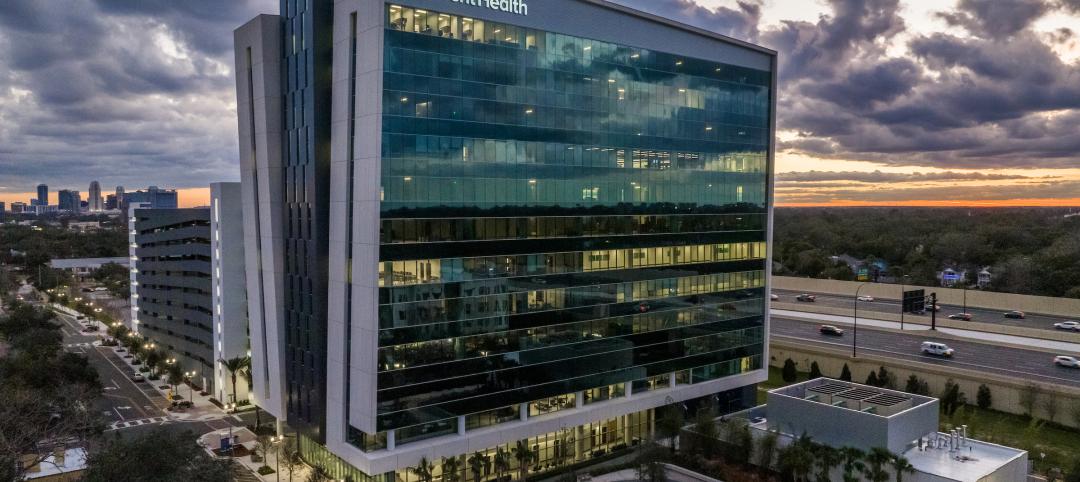Video may have killed the radio star, but has e-commerce done the same to your local retail establishment? Will the rise of everything from Amazon to Zappos take down the bookstore up the street, your local shoe store? Don’t bet on it.
While the much-touted demise of good old fashioned, bricks-and-mortar stores makes for good headlines, it’s not actually based in fact.
According to JLL’s Cross Sector Outlook released this spring, despite e-commerce’s leaps and bounds over the last few years, it still represents a relatively small percentage of total retail sales—6.0% to be exact. Your shoe store is safe for now, and probably well into the future.
“Remember catalogs? Flipping through the pages, dialing up a call center and placing an order? Web sales are really just replacing that,” said Kris Cooper, Managing Director, JLL Capital Markets. “People still need to see and touch things; the instant gratification of an in-store purchase can’t be discounted. Retailers who want to thrive will need to incorporate it all—hands-on goods, e-commerce and mobile-commerce.”
Despite these emerging structural challenges and newly-announced store closings, such as those of Radio Shack, Office Depot, and Coldwater Creek, the U.S. retail sector has continued on its solid recovery and is exhibiting tightening market conditions.
Cap rates compressed by approximately 20 basis points in 2013 as rent growth is expected to increase to 2.7% in 2014. Vacancy rates are also expected to compress another 20 basis points by the end of this year.
Right now, power centers, in particular, are punching above their weight class, experiencing the tightest overall market conditions with a total vacancy rate of just 5.1%.
A FEEDING FRENZY
What does this mean for the health of the retail investment sales and financing market? Investors have wasted no time hopping back on the retail bandwagon, particularly in core markets where new product often produces a “feeding frenzy.”
In February, Savanna purchased 10 Madison Square West in New York for more than $2,900 per square foot ($60 million). Price appreciation for retail product was outstanding in 2013; the Moody’s/RCA CPPI for retail is expected to post a 23% increase for the year—and reach similar numbers by the end of 2014.
“Right now, it’s all about high-quality, grocery-anchored centers and trophy malls," said Margaret Caldwell, Managing Director, JLL’s Capital Markets. "Demand for those asset types is incredible right now—if only we could convince all the owners to bring those to market. Investment in the gateway cities is strong, as always—but watch for a few dark horses to emerge in the coming months. Markets like Phoenix and Indianapolis could make some real headway by the end of the year.”
In the financing arena, debt is plentiful as balance sheet lenders such as life insurance companies are increasing their allocations in 2014 and remain competitive, while domestic banks continue to report stronger demand for commercial property loans. CMBS money is also plentiful, with retail collateralizing 20 percent of all CMBS deals in the first quarter of 2014.
“Watch for equity to make some significant strides in the retail space in the coming year, as well,” said Mark Brandenburg, Executive Vice President, JLL’s Capital Markets. “For a long time, equity sponsors were holding back, waiting to see if retail would survive the e-commerce invasion. Now that things have settled down a bit, many of those JV equity players are under allocated in the retail space and they’ll need to make some big plays to balance things out.”
Brandenburg also advises investors to keep their eyes on secondary markets as the borrowing rates for primary versus secondary markets don’t vary much.
“Leveraged yields into secondary and tertiary markets will be higher for the same quality real estate due to positive leverage between borrowing rates and cap rates,” he concluded.
About JLL's Retail Group
JLL’s Retail Group serves as the industry’s leader in retail real estate services. The firm’s more than 850 dedicated retail experts in the Americas partner with investors and occupiers around the globe to support and shape investment and site selection strategies.
Its retail specialists provide independent and expert advice to clients, backed by industry-leading research that delivers maximum value throughout the entire lifecycle of an asset or lease. The firm has more than 80 retail brokerage experts spanning 20 major markets, representing more than 100 retail clients. As the largest third party retail property manager in the United States, JLL’s retail portfolio has 305 centers, totaling 65.7 million square feet under management in regional malls, lifestyle centers, grocery-anchored centers, power centers, central business districts, transportation facilities and mixed-use projects.
For more, visit www.jllretail.com.
Related Stories
Office Buildings | Oct 16, 2023
The impact of office-to-residential conversion on downtown areas
Gensler's Duanne Render looks at the incentives that could bring more office-to-residential conversions to life.
Giants 400 | Oct 11, 2023
Top 100 Industrial Sector Architecture Firms for 2023
Ware Malcomb, Arcadis, Stantec, and Gresham Smith top the ranking of the nation's largest industrial facility sector architecture and architecture/engineering (AE) firms for 2023, as reported in Building Design+Construction's 2023 Giants 400 Report.
Products and Materials | Oct 10, 2023
‘Works with WELL’ product licensing program launched by International WELL Building Institute
The International WELL Building Institute (IWBI) recently launched the Works with WELL product licensing program. Works with Well certification allows manufacturers to demonstrate that their products align with WELL strategies.
Mass Timber | Oct 10, 2023
New York City launches Mass Timber Studio to spur more wood construction
New York City Economic Development Corporation (NYCEDC) recently launched New York City Mass Timber Studio, “a technical assistance program to support active mass timber development projects in the early phases of project planning and design.”
Government Buildings | Oct 10, 2023
GSA names Elliot Doomes Public Buildings Service Commissioner
The U.S. General Services Administration (GSA) announced that the agency’s Public Buildings Service Commissioner Nina Albert will depart on Oct. 13 and that Elliot Doomes will succeed her.
Esports Arenas | Oct 10, 2023
Modular esports arena attracts more than gamers
As the esports market continues to grow to unprecedented numbers, more facilities are being developed by universities and real estate firms each year.
Higher Education | Oct 10, 2023
Tracking the carbon footprint of higher education campuses in the era of online learning
With more effective use of their facilities, streamlining of administration, and thoughtful adoption of high-quality online learning, colleges and universities can raise enrollment by at least 30%, reducing their carbon footprint per student by 11% and lowering their cost per student by 15% with the same level of instruction and better student support.
MFPRO+ News | Oct 6, 2023
Announcing MultifamilyPro+
BD+C has served the multifamily design and construction sector for more than 60 years, and now we're introducing a central hub within BDCnetwork.com for all things multifamily.
Giants 400 | Oct 5, 2023
Top 175 Healthcare Architecture Firms for 2023
HDR, HKS, CannonDesign, Stantec, and SmithGroup top BD+C's ranking of the nation's largest healthcare sector architecture and architecture/engineering (AE) firms for 2023, as reported in Building Design+Construction's 2023 Giants 400 Report. Note: This ranking includes revenue related to all healthcare buildings work, including hospitals, medical office buildings, and outpatient facilities.
Biophilic Design | Oct 4, 2023
Transforming the entry experience with biophilic design
Vessel Architecture & Design's Cassandra Wallace, AIA, NCARB, explores how incorporating biophilic design elements and dynamic lighting can transform a seemingly cavernous entry space into a warm and inviting focal point.
















